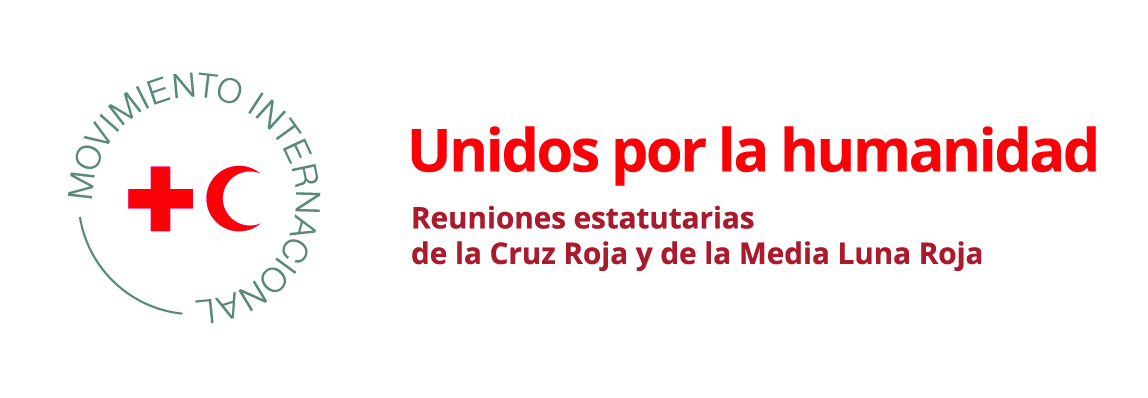Acciones tomadas:
Canadian Red Cross (CRC) has implemented pledge commitments, both internally and in building the capacities within communities. Specific actions taken include:
CRC advocates for mental health and psychosocial support in humanitarian response, including the importance of psychological first aid capacity and attention to the protection and wellbeing of staff and volunteers in relevant policy forums:
MHPSS has been integrated as a core component in all large-scale emergency responses (L3-5) domestically and through technical support to small scale response (L1-2).
MHPSS services are fully integrated and MHPSS community-based strategies are defined for unique recovery operations, alongside embedded capacity within Case Management.
MHPSS embedded capacity (integration) exists within Friendly Calls programming to ensure escalated focused psychosocial response.
MHPSS has been successfully integrated into unique responses: opioid crisis; collective trauma; migration response (refugee claimant supports, Ukraine response, etc.); and mass casualty events.
MHPSS surge and ERU registers continue to support international operations, under a dedicated leadership focal point/management structure.
MHPSS has led/supported interventions with key government/partners, including the Public Health Agency of Canada, Public Safety Canada and provincial/territorial counterparts.
MHPSS has leveraged PFA within coordination/collaboration around the MH impacts of climate change (with the following: International Transformational Resilience Coalition, Mental Health and Climate Change Alliance, Health Canada/Public Health Agency of Canada)
MHPSS has integrated access to online PFA modules (below) for agencies funded through the “Strengthening Mental Health and Wellbeing in COVID-19 Recovery” granting program, and all response/recovery operational partners in affected communities.
CRC ensures all staff and (where applicable) volunteers are trained in psychological first aid as relevant to their situation, sector and role.
PFA online training has been integrated into the learning paths for Emergency Management across all levels, and within Community Health and Wellness, Recovery Services, Risk Reduction/Resilience, with additional training required for core positions within response structure; other teams have similarly integrated PFA as training for personnel (for example, communications).
PFA add-ons (online) was created to contextualize PFA for specific responses/environments; Intro course added to ensure just-in-time training for new response personnel who have not completed the learning path prior to deployment.
Adapted PFA for Indigenous communities and personnel has been successfully mobilized through appropriate teams/structures ensuring representation.
CRC provided training of community members, in communities at risk or from equity deserving populations, in psychological first aid as relevant to their situation.
In addition to providing PFA training in the general context of emergency response, CRC recognized the need for flexibility to adapt to specific and unique realities facing diverse populations.
Low barrier PFA, including for People experiencing substance use/addictions:
Recognizing the need to further reduce barriers for those at risk, CRC MHPSS Instructor Trainers adapted and delivered a low-barrier PFA training to support members of the Peer-Assisted Care Teams (PACT) within a partner agency.
PFA with Indigenous communities and organizations:
Acknowledging commitments within the Truth and Reconciliation commission and CRC’s Indigenous Peoples Framework, PFA is continuing to be adapted in recognition of the unique situations facing Indigenous communities in Canada. For example, PFA training was provided to over 300 members of the wellness support team for the Papal visit to Canada, to acknowledge the trauma and harm caused Indigenous Peoples in Canada at the sites of former Residential Schools. CRC has delivered 80 Psychological First Aid (PFA) trainings to Indigenous communities and organizations who support Indigenous communities, across Canada. This includes PFA courses offered to First Nations in Manitoba and Quebec.
PFA with youth:
PFA has been adapted and piloted for youth with support from LEGO. CRC worked with youth to support them to establish safe environments for themselves and their peers. Through this project, CRC was able to reach 140 young learners over seven test sites across Canada. Facilitators expressed that the lessons had a beneficial effect on the learners and their understanding/use of mental health and emotions.
Integrate psychological first aid principles in First Aid trainings.
PFA content has been integrated into Prevention and Safety (First Aid) Instructor/Instructor Trainer Recertification courses.
PFA content regarding resilience, difficult conversations, and loss integrated into the Instructor Trainer recertification course.
A PFA Instructor Recertification course was launched in 2023 to ensure that this audience is receiving appropriate professional development and encountering new content that will be relevant in their classrooms.
The core first aid program is currently undergoing a full revision. In addition to basic PSS integrated earlier, this comprehensive revision will see the inclusion of a full PFA chapter in all Standard, Emergency and Childcare First Aid Courses.
Information regarding self-care and care for others outside of the injured party such as bystanders and family members is included in First Aid course content in hopes of bringing awareness to the importance of psychological wellness and aftercare in an emergency.
Strengthen existing or build new systems for developing PFA skills and capacities, and provide mentoring and supervision, including at local level.
CRC established a Community of Practice for MHPSS Advisors.
Peer support network (virtual) has been mobilized through People Services to support CRC teams.
CRC developed and mobilized dedicated/adapted PFA for Indigenous contexts.
Overview of Reach of PFA (stats) internally and externally:
PFA Instructor & PFA Instructor Trainer capacity (2020-present):
CRC supports the formalized training of PFA internally and externally through training partners. CRC has dedicated personnel trained as instructors and instructor trainers to deliver PFA within emergencies contexts.



